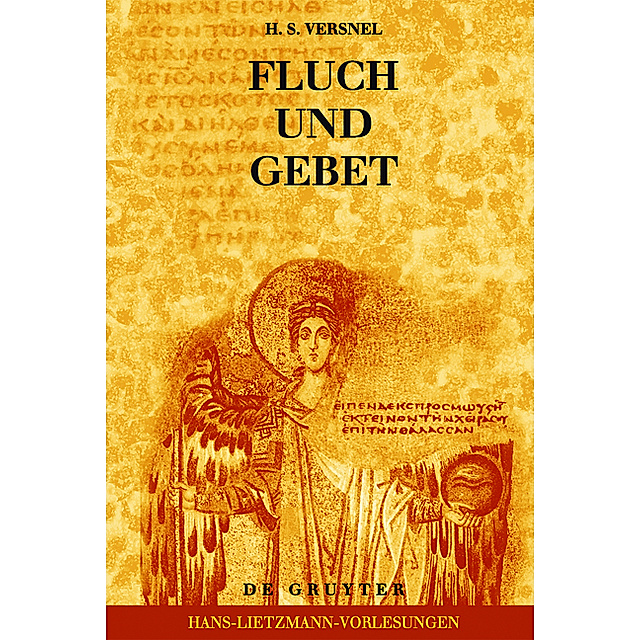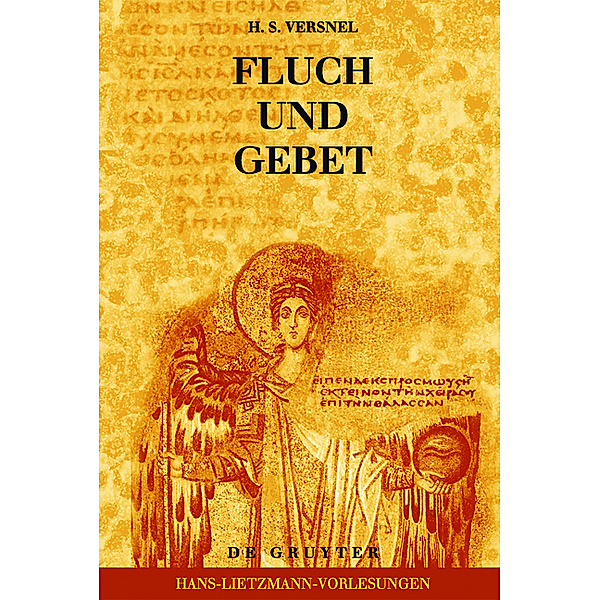Fluch und Gebet: Magische Manipulation versus religiöses Flehen?
Religionsgeschichtliche und hermeneutische Betrachtungen über antike Fluchtafeln
This public lecture is staged annually in memory of the ecclesiastic historian Hans Lietzmann (1875-1942), Adolf von Harnacks's successor as director of the Academy project The Greek Christian Authors of the First Centuries (GDS) . The invited speaker is...
Voraussichtlich lieferbar in 3 Tag(en)
versandkostenfrei
Buch (Gebunden)
54.95 €
- Lastschrift, Kreditkarte, Paypal, Rechnung
- Kostenlose Rücksendung
- Ratenzahlung möglich
Produktdetails
Produktinformationen zu „Fluch und Gebet: Magische Manipulation versus religiöses Flehen? “
This public lecture is staged annually in memory of the ecclesiastic historian Hans Lietzmann (1875-1942), Adolf von Harnacks's successor as director of the Academy project The Greek Christian Authors of the First Centuries (GDS) . The invited speaker is an internationally renowned scholar from the field of classical studies. The lectures address central topics of the history of ancient religion that are of relevance to the present day.
Klappentext zu „Fluch und Gebet: Magische Manipulation versus religiöses Flehen? “
This study touches on the vexed issue concerning the relationship of magic and religion, a problem that, despite all claims to the contrary, stubbornly resists losing interest and import. A close reading of ancient Geek and Latin curses written on lead tablets reveals a never fully explored demarcation in terms of legitimacy and illegitimacy between two types. Binding curses (defixiones), on the one hand, were meant to bind' - that is render powerless - opponents or rivals. Buried in graves, pits or wells, they lacked references to the notion of justification and displayed words and actions of a manipulative nature that modern readers would associate with what we call magic. Marked by secrecy, they were liable to suspicion and social disapproval. Another category of curses on lead, albeit also categorized as defixiones in modern scholarly literature, appears to be of a radically different nature. Often publicised in temples they implored the local god to punish a (mostly) unknown person for having wronged (by theft, slander, or maltreatment) the author. Besides a markedly deferential tone and an attitude of submissiveness, various other characteristics reveal these texts as prayers for justice, thus in our perception being expressions of pious religiosity. The fact that the ancient users were aware of the distinction and acted accordingly evokes a reconsideration of the use of modern notions magic and religion for ancient Greek and Roman curse practice.
Autoren-Porträt von H. S. Versnel
H. S. Versnel, Universität Leiden, Niederlande.
Bibliographische Angaben
- Autor: H. S. Versnel
- 2009, X, 54 Seiten, Maße: 13,5 x 20,5 cm, Gebunden, Deutsch
- Verlag: De Gruyter
- ISBN-10: 3110226359
- ISBN-13: 9783110226355
- Erscheinungsdatum: 26.04.2010
Kommentar zu "Fluch und Gebet: Magische Manipulation versus religiöses Flehen?"




Schreiben Sie einen Kommentar zu "Fluch und Gebet: Magische Manipulation versus religiöses Flehen?".
Kommentar verfassen